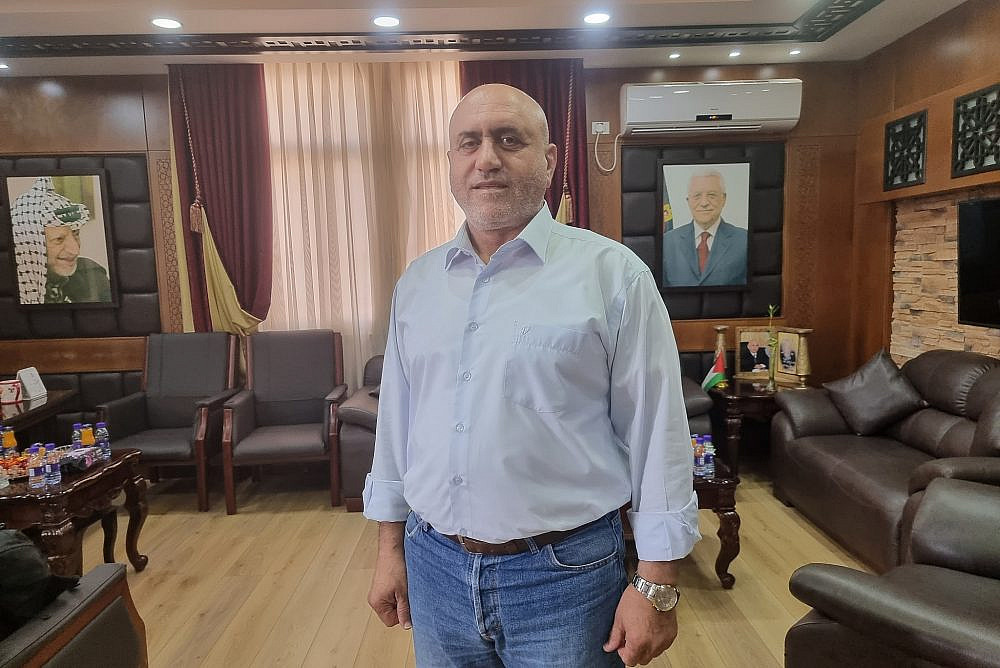The day before Nablus flared up last week, after Palestinian security forces launched an arrest raid that was met with gunfights from armed groups and protests by residents, I parked my car in front of the Palestinian Authority (PA) Preventive Security headquarters in Jenin. It is an impressive stone structure, surrounded by a wall and tall guard towers, built with the help of the European Union. Next to me were several armed men in uniform. Across the road was a Pizza Hut, where I waited for a security guard to take me to a meeting with the Palestinian governor of Jenin, Akram Rajoub.
The street — a boulevard with palm and pine trees — was bustling with people. A large sign read “The Heroes,” with the names of the six escapees from Gilboa Prison break last year. There was a police station, a bus station, a KFC, and an armed Palestinian in tight khaki pants wandering around. Then they called me.
Rajoub’s bodyguard drove a car with tinted windows, and inside there was a strong smell of cherries. Rajoub welcomed me into his office on the top floor of the building, a spacious room with wooden finishes. On the wall hung pictures of PA President Mahmoud Abbas and his predecessor, Yasser Arafat.
In recent weeks, the head of the Shin Bet Ronen Bar and outgoing IDF Chief of Staff Aviv Kochavi blamed the PA security apparatus for the deterioration of the “security situation” in the West Bank. According to them, the PA created “fertile ground for terrorism,” and revealed “incompetence” and a “lack of governance” in the northern West Bank; Jenin Refugee Camp, located a few hundred meters from Rajoub’s office, was cited as an example.
The PA rarely enters these areas. When it makes arrests there, often at Israel’s request, it encounters armed resistance, which also causes widespread public outrage. A day later, in Nablus, such an arrest led to large-scale clashes on the streets between hundreds of residents and the PA forces.
Rajoub devoted a major part of our interview to rebutting Israel’s claims against the PA. Israel, he said, is responsible for the situation, by deliberately acting to weaken the PA and undermine its power. In order to change the situation, Rajoub said, Israel needs to stop confiscating the PA’s tax money and impoverishing it financially; reduce to a minimum the army’s incursions into Jenin, which makes it difficult for the PA’s security apparatus to operate there themselves; and above all, return to negotiations for the establishment of a Palestinian state.
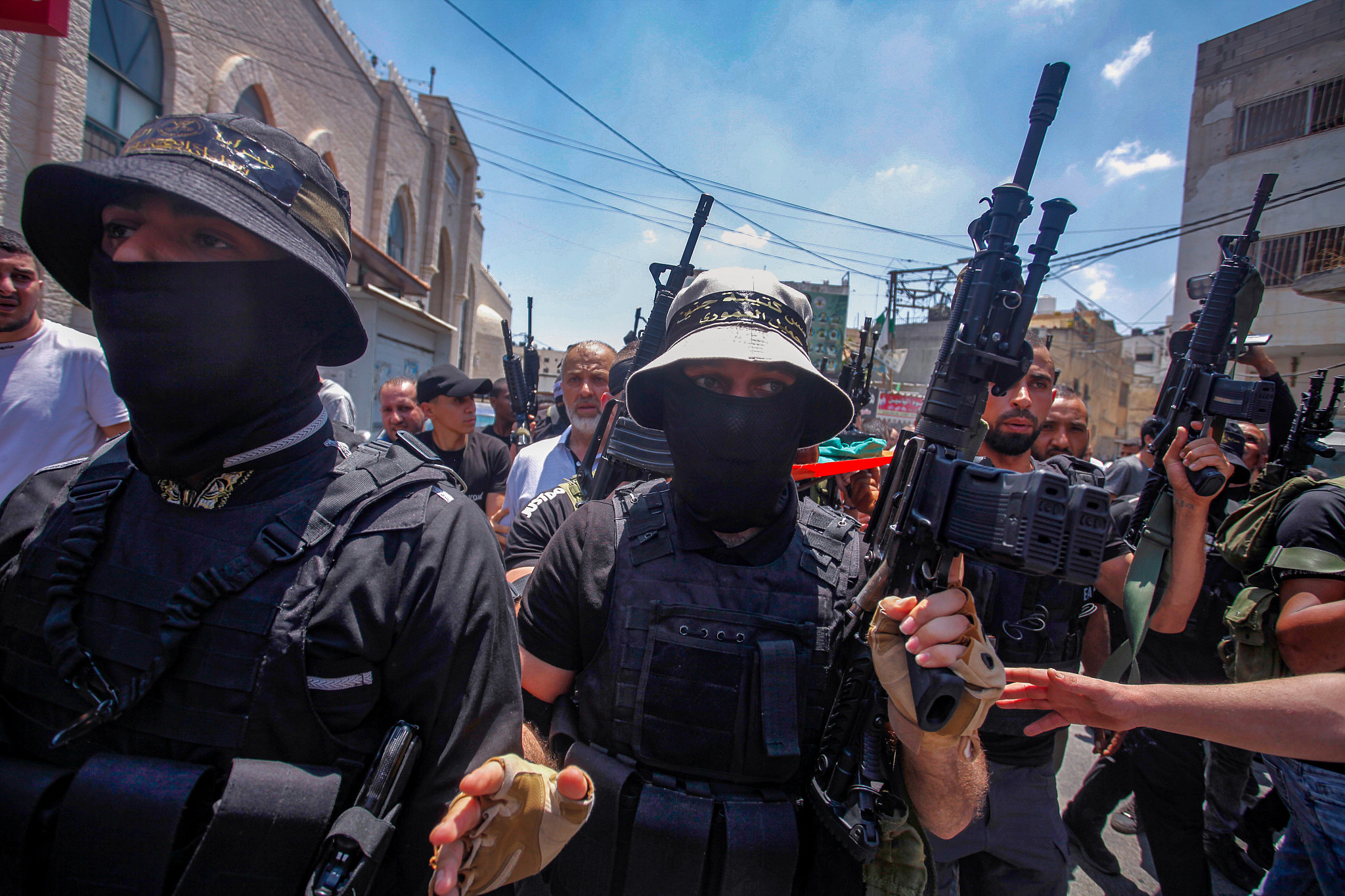
In the first nine months of 2022, 34 Palestinians were killed by Israeli army and police fire in Jenin and its neighboring villages — a higher death toll than all the Palestinians killed there between 2009 and 2021 combined. The change is dramatic. According to the army’s estimates and those from other sources, around 65 percent of the casualties were active in armed struggle.
The turning point, the data shows, was in the events of May 2021. This year, after the killings of Israeli citizens in the cities of Bnei Brak, Elad, and Tel Aviv by Palestinians who came from the Jenin area, the military presence and arrests in the city and surrounding villages increased greatly.
‘Israel isn’t working to strengthen the PA, but to weaken it’
In April, Rajoub caused a minor storm after he said in an interview with Israel’s national broadcaster Kan, in Hebrew, that he “does not consider” Ra’ed Hazem, a resident of Jenin Refugee Camp who killed three Israelis on Dizengoff Street in Tel Aviv, a “terrorist.” At the beginning of the interview, Rajoub said that “everyone is against murder,” but “Israel has pushed the Palestinian people into a corner.” He asked the interviewers, Gal Berger and Liat Regev, if they say that Israeli soldiers who go in “and kill, even innocent people, are terrorists.” Berger replied that there is no symmetry, and that soldiers do not come with the prior intention of murder.
In his office, Rajoub said that the statement “boiled the Israeli side,” and in his opinion this is the reason he was stripped of the VIP status given to the Palestinian political elite, which allows its members to enter Jerusalem and Israel.
Rajoub was appointed head of the Jenin governorate four years ago. The 11 governors in the West Bank, including Jerusalem, are personally appointed by President Abbas. They have a decisive influence over the PA security apparatus and even have the authority to arrest Palestinians without trial.
A member of the Fatah party which Abbas heads, Rajoub was born in the town of Dura near Hebron in the southern West Bank. After over a decade in an Israeli prison, where he learned Hebrew, he was released during the Oslo peace process, and immediately joined the PA security apparatus when it was established in 1994, advancing to a senior rank before serving briefly as the Nablus governor in 2014-16. His cousin, Jibril Rajoub, is also a senior official in Fatah and the PA.
This interview has been edited for length and clarity.
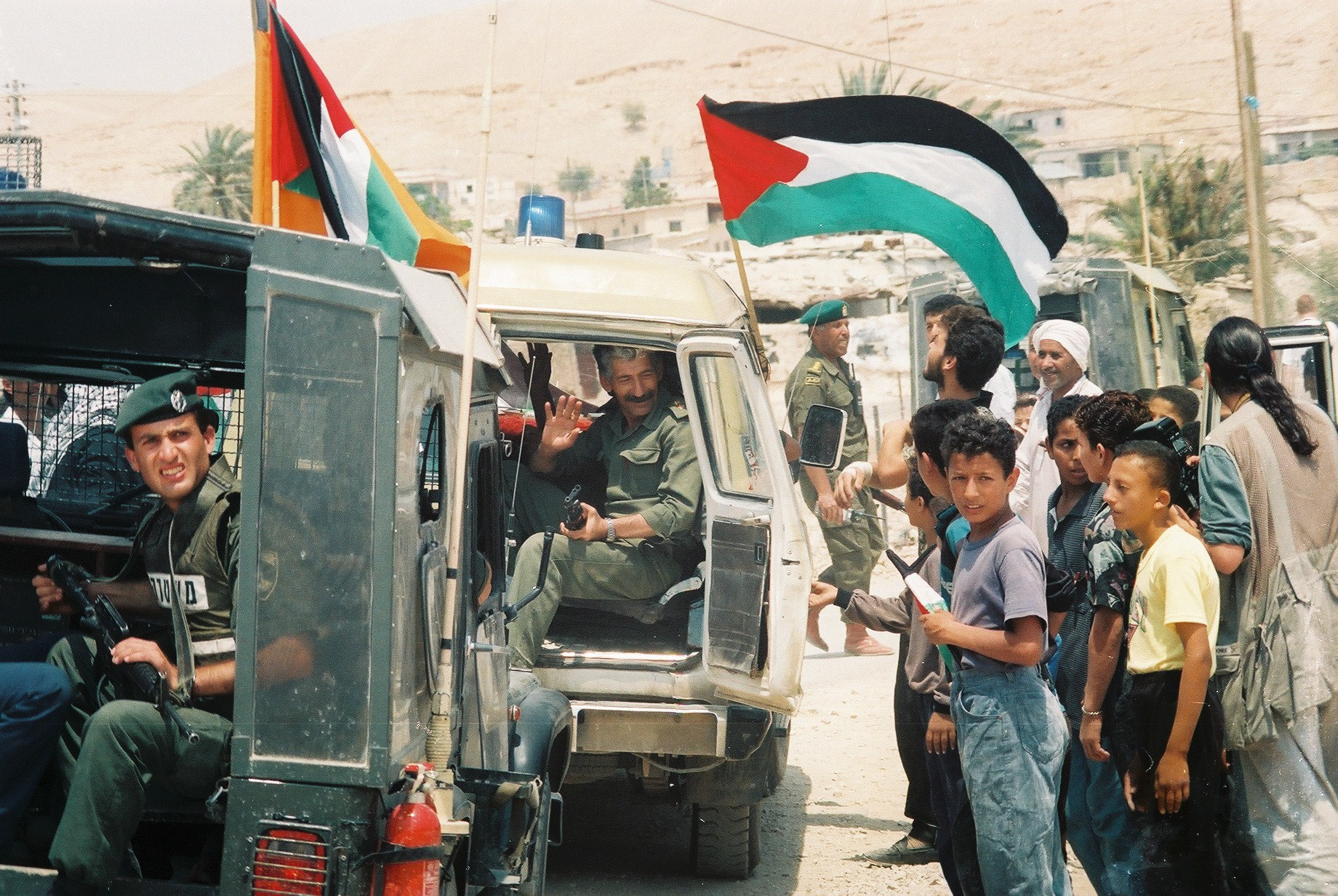
What is the biggest change you see since Oslo and the 1990s in Palestinian society?
Back then we had hope that a Palestinian state would be established. There was a clearer political horizon, and the relationship with the Israelis was also better. Israel and the PA understood each other and complied with the agreements that were signed.
That began to change with the Wye River Memorandum in 1998 [by which time Benjamin Netanyahu was serving his first term as Israel’s prime minister], and then with Camp David in 2000. It became clear that the Israeli side is not ready to provide a solution that is in line with Palestinian demands. From national hope for an independent state and a capital city, the entire political horizon disappeared.
When this happened, the drums of war began to beat. There was mutual violence. Our people will not raise a white flag to the occupation. That’s how the situation deteriorated, until we reached the situation of today.
How would you define the situation of today?
The Palestinian people have lost their hope in the future. There is nothing worse than causing a person to lose their hope.
In the Israeli media, plenty has been written about the fact that the PA is not functioning in Jenin. They say that Israel wants to strengthen the PA, so that the security apparatus will act effectively against Palestinian militants. What do you think?
That is a lie that echoes in the Israeli media. Israel is not working to strengthen the PA but to weaken it. If you refuse to grant me the most basic right to be the master of my destiny and to establish a state, then what do you want from me? You expect me to continue to maintain your security without getting anything in return? How can you want to strengthen us, so long as you keep invading our cities, killing people here, expanding settlements, demolishing houses, and confiscating our money?
When the Israeli occupation decides to give the Palestinian people a state within the 1967 borders, at that very moment Israel will discover that the PA can solve all its internal problems. But you don’t want to. And if someone says: “Okay, let’s live in one binational state with equal rights and obligations,” you don’t want that either. So what do you want?
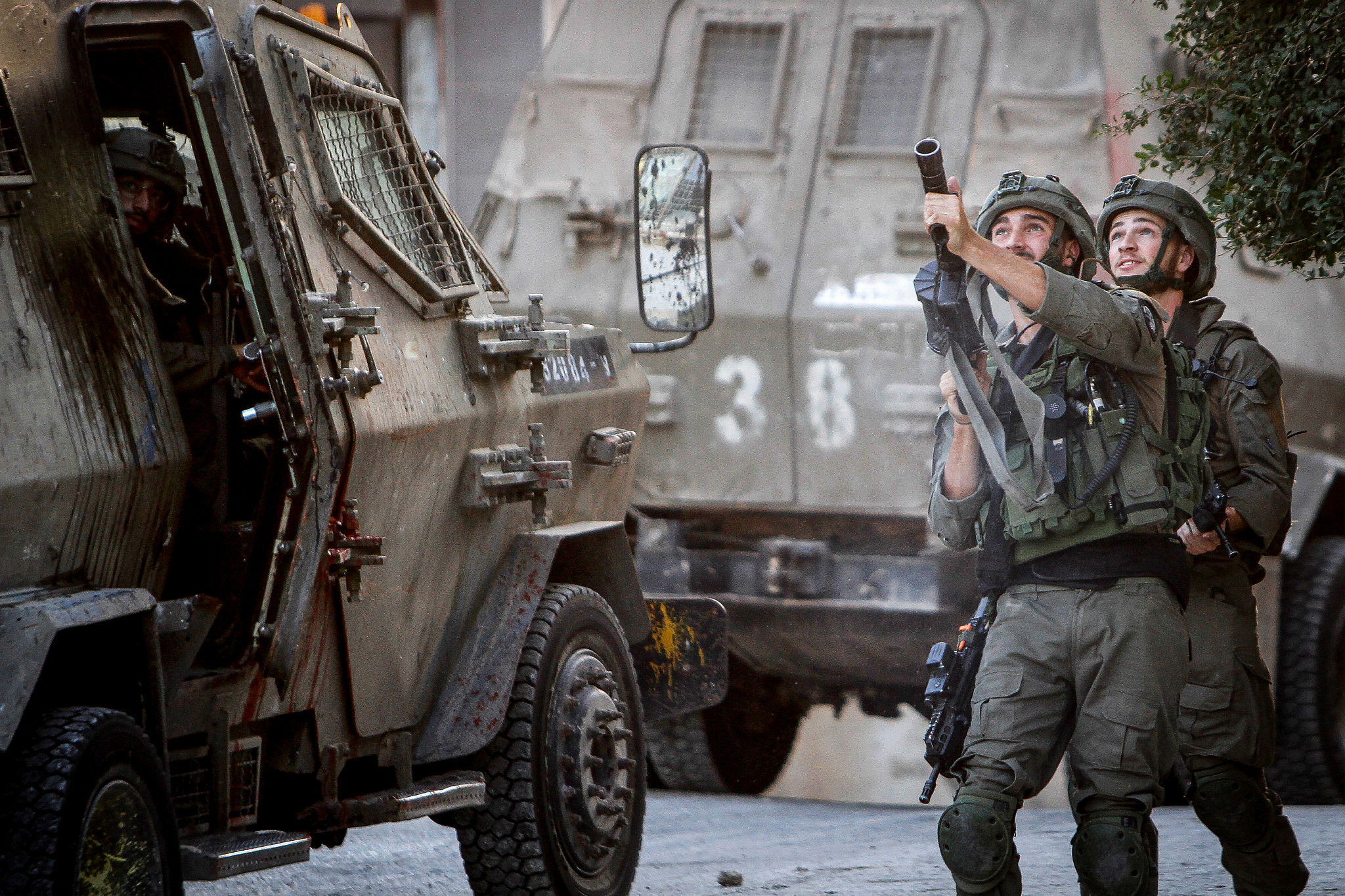
What does Israel want?
A security situation that will serve you, and a PA that will serve you.
Have you made a decision to stop operating in Jenin Refugee Camp as long as the occupation continues and Israel gives you nothing in return?
No. That’s not what I said. The problem is that Israel invades the camp at night, kills people, and then asks us to operate there during the day. We cannot work in the same turf as the Israelis.
Can Israel force you to operate there during the day?
No. If I don’t want to do something, I don’t do it.
Do they tell you when they are entering?
They tell us only after they have already entered. First a special forces unit enters, takes control of the area, and then they tell us. That’s the nature of their work. We have had more than 30 martyrs in Jenin in less than a year. This has an influence on security and on everybody.
If the PA doesn’t have real sovereignty, why not give the keys back to Israel?
Because our people benefit from having control over internal issues. Despite all the effects of the occupation, we have a passport and ID cards that we issue, and educational frameworks, health institutions, and hospitals that we manage. We built the PA with blood, we won’t give up on it — that would be a mistake. Unless we reach a stage where we can no longer bear the situation.
What would that stage be? What is the red line?
Only God knows. It’s difficult to answer that.
Does the PA have a strategy or plan of action for achieving the national goals and building a Palestinian state?
To stay on our land and in our homes. To work with all our diplomatic power to get the world to support the Palestinian issue, so that we can push the Israeli government to recognize our right to establish a state.
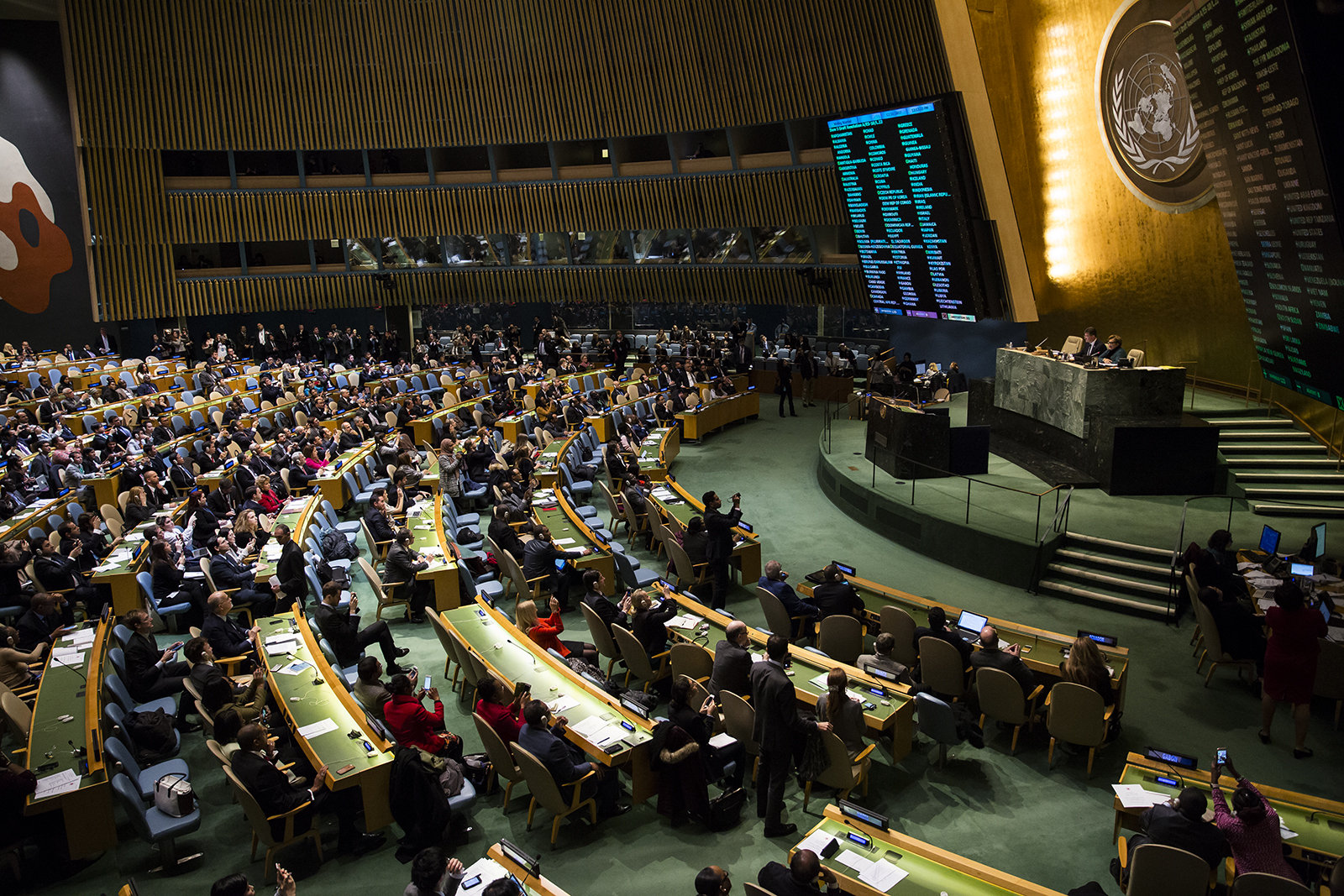
But that is not happening.
It will happen. If not this year, then next year. Time has no meaning in the days of nations.
Why does the PA not support, let’s say, popular resistance? Is something preventing you from doing that?
Nothing is preventing it. But in light of the PA’s situation, we don’t have the resources to support popular resistance. We don’t have the resources to pay PA workers, so how would there be something for popular resistance? Personally, I think that popular resistance is preferable to armed resistance.
There are many claims about corruption — money being kept by the senior officials rather than reaching the people.
That’s an empty claim. Like every government, in every country, there can be problems, but at the degree that is presented? No, it is not true. What funds does the PA have that do not reach the people? We are unable to pay the salaries of our employees. We depend on taxes that Israel collects on our behalf, and confiscates a portion of them every month.
‘Freedom of movement doesn’t guarantee freedom for a person’
Despite Rajoub’s statement, evidence of rampant corruption in the corridors of the PA is actually quite abundant. The current economic crisis stems partially from that corruption, as well as the more obvious root problem: that it is impossible to maintain a functioning economy under a military regime, when the Palestinians have no airport, nor the possibility of developing agricultural land in Area C, nor access to Jerusalem, nor control over their borders and natural resources.
On top of that, Israel “fines” the PA about NIS 50 million every month, taken directly from the Palestinian taxpayer’s money, under the pretext of the latter’s provision of funds to the families of what is today over 4,500 political prisoners. For every shekel that the PA transfers to the prisoners’ families, it loses tax money that Israel collects in its name at the border crossings.
This is no meager amount: Israel has offset at least NIS 2 billion from the PA’s coffers since the law went into effect in 2019. About a quarter of the amount taken was given to the PA as a loan in two separate installments last year. The heads of Israel’s security establishment previously expressed opposition to these punitive measures, but the political echelon insisted on them.
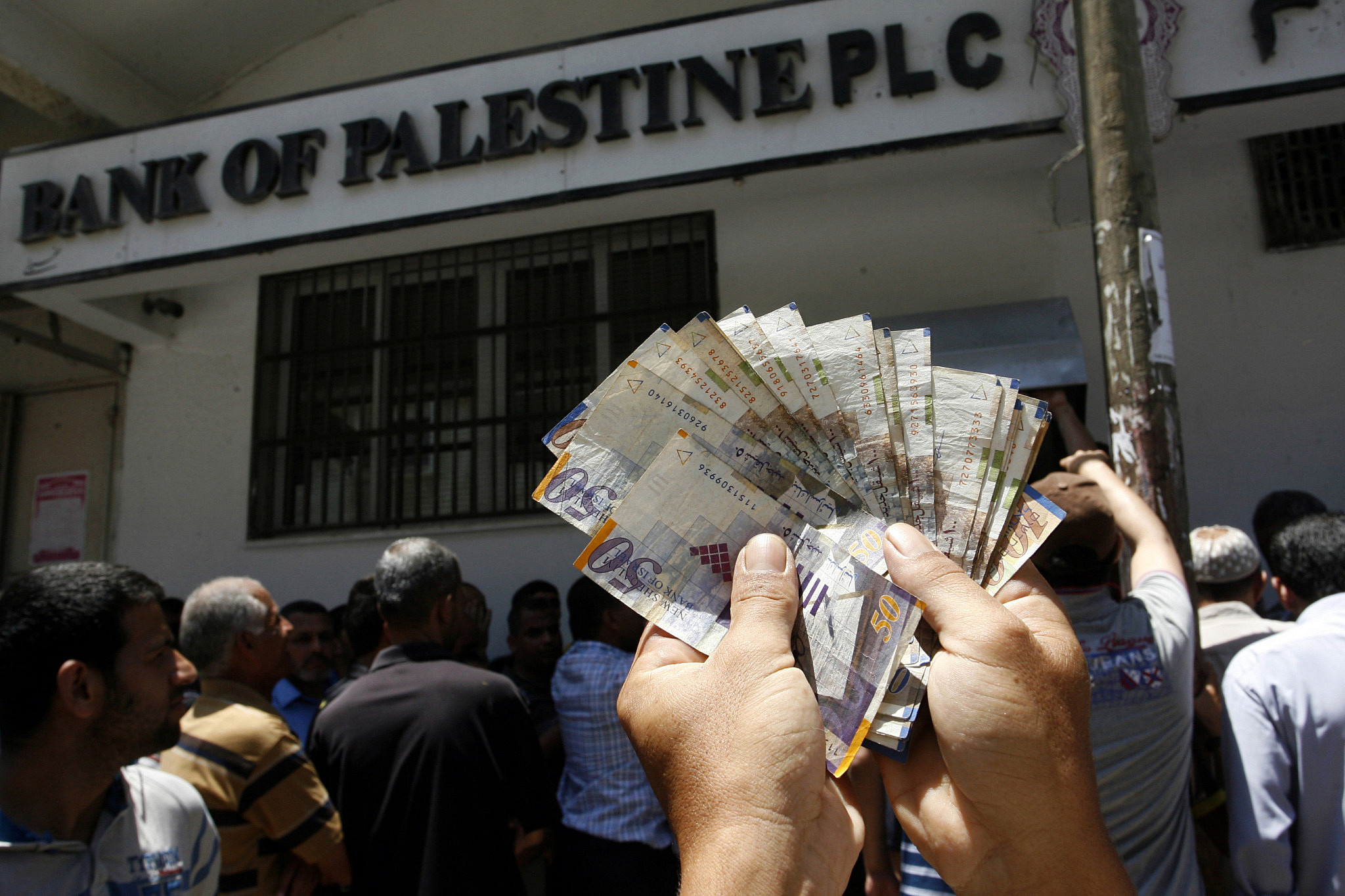
How does the offsetting of funds affect you?
We have no way to pay salaries. PA employees do not receive full salaries. The PA fails to provide services properly, and this affects the economy greatly. This is a deliberate move by Israel to weaken the PA. And the proof is there: why are you confiscating my money, and at the same time going to Qatar, openly bringing money in suitcases, through Netanyahu and the Mossad, and transferring the money to Hamas in Gaza? Because you want to weaken the PA here and strengthen Hamas there.
The money was taken with the excuse that it goes to the families of the prisoners and the martyrs. According to Israeli logic, this encourages terrorism. But this is a ridiculous and incorrect concept. What did you do with Yitzhak Rabin’s killer? The number one terrorist, Yigal Amir? He is in prison, but his wife and children receive social security, a salary from the government. Why is Israel allowed to provide for the family of the prime minister’s killer, and the PA is not allowed to provide for the families of the prisoners and martyrs, who in our view are heroes and freedom fighters?
Let’s move on to another topic. A central claim among many Palestinians is that the PA members, the political elite, received benefits and VIP permits from Israel, and therefore are not working to change the situation. Divide and rule. And this provides Israel a means of putting pressure [on the PA].
Freedom of movement does not guarantee freedom for a person. So what if I am allowed to enter Israel? What can I do there? Isn’t that a privilege that can be clung to?
It is clear to me that everyone is under occupation — from the president to the last of the workers. But why don’t you refuse? As long as there is an occupation, you can reject this VIP system, which gives a little more to a limited group, and less to others.
I don’t see this is a problem. If someone has a VIP permit and wants to enter Israel, what can he do? Eat fish in a restaurant? Maybe.
I don’t think this situation gives the Israelis the opportunity to put pressure on us. Let’s say they take all the permits from the officials. Let them take them. The United States, with all its power, and Trump, did not change the Palestinian position, so will this form of Israeli pressure change the position of the leadership? No. The permits facilitate our movement. But in the end, even if you have one, you are stopped at the checkpoint, like anyone else. This is not, by any means, a method of pressure against us.
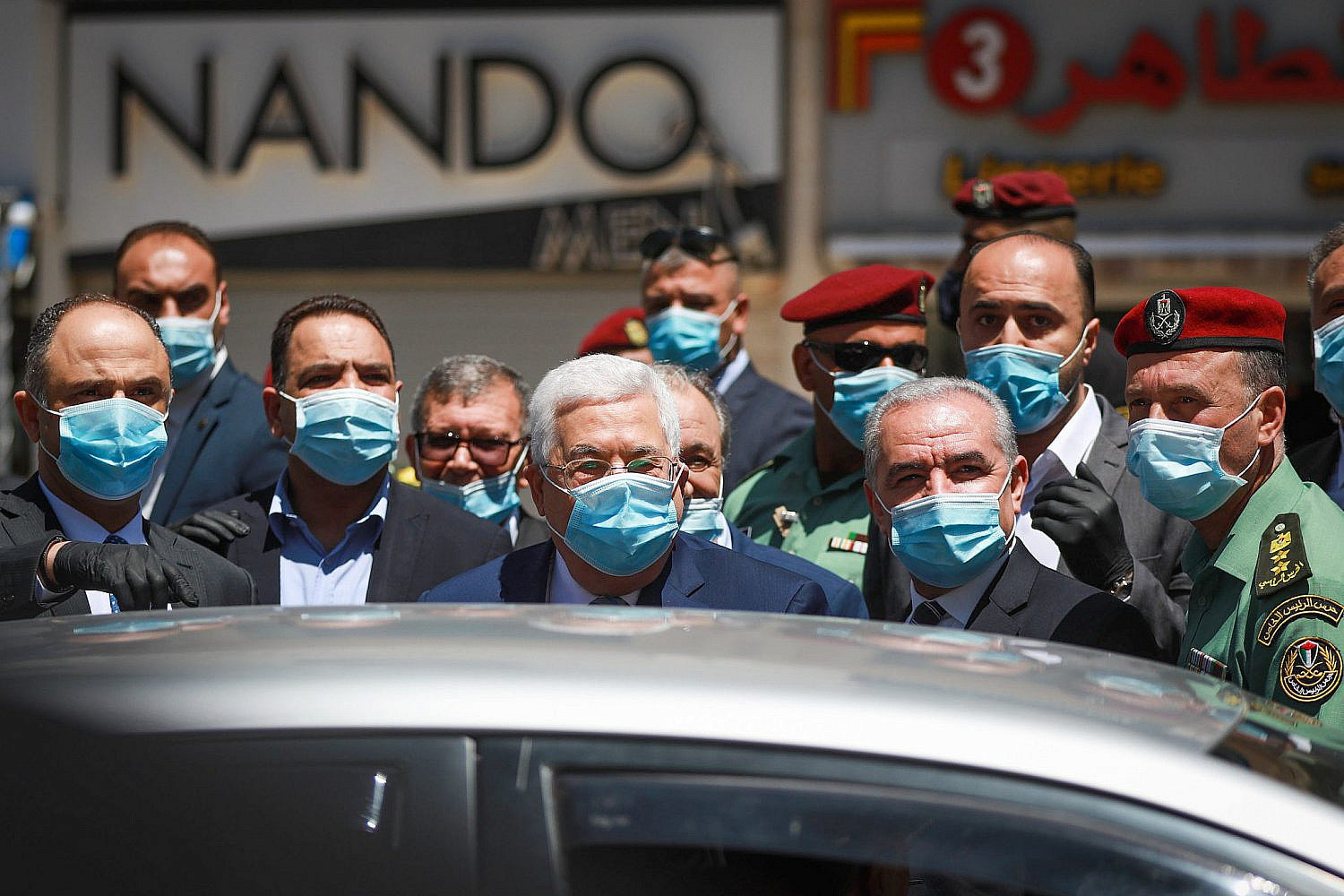
What immediate steps can Israel take to improve the PA’s situation?
The first and most important step: to put the political issue back on the table between the parties. Let’s talk about the political future. Recognize our rights in our land. This is the most important step. It will give hope to the Palestinian people. Hope for the future. Hope that we are moving in the direction of an understanding with the Israelis [regarding] national rights.
What else?
The second thing is that the Israelis reduce or stop entirely their raids into our areas. The third is to release the money that is taken from us on a monthly basis.
There are those who will tell you that this ship has sailed. There is a split between Fatah and Hamas, the PA is barely supported by the Palestinian people, and many now believe in armed struggle. Maybe it was possible to reach such a political solution 10 years ago.
You asked me what can be done. I told you. If it doesn’t happen, the Palestinian public will not agree to an interim solution. If this issue, of a state based on 1967 borders, no longer exists among the Israelis, then what is left?
A version of this article was first published in Hebrew on Local Call. Read it here.


